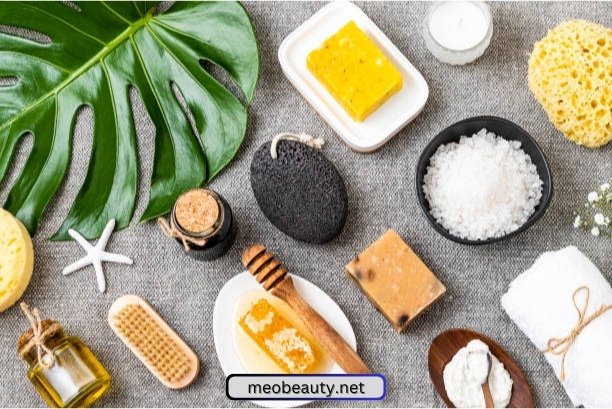Organic skin care products often come with higher price tags and limited shelf lives. They may also cause allergic reactions due to natural ingredients.
Organic skin care products have surged in popularity among consumers seeking healthier, more natural alternatives to conventional beauty products. Despite this growing trend, it’s essential to recognize potential drawbacks that could affect your skin care routine. Limited availability and less dramatic immediate results can also be disadvantages for those used to the quick fixes offered by chemical-based products.
Understanding these limitations is crucial for consumers making informed decisions about their skin care choices. As the market for organic beauty continues to expand, it’s important to weigh these factors alongside the benefits of using natural ingredients on your skin.

Credit: www.medicalnewstoday.com
The Price Of Purity
Organic skin care products stand out for their pure ingredients. These products promise no harmful chemicals. They suit sensitive skin and support the environment. But pure does not mean perfect. One main issue for many is the price.
Cost Comparison With Conventional Products
Organic skin care often costs more than traditional options. Why? The production process is more complex. Let’s break down the key factors:
- Certification Fees: Organic products require certification. This process is expensive.
- High-Quality Ingredients: Pure, natural ingredients often come at a higher cost.
- Small-Scale Production: Many organic products come from smaller companies with lower production volumes, which can increase the per-unit cost.
A price comparison table illustrates the differences:
| Product Type | Organic (Average Price) | Conventional (Average Price) |
|---|---|---|
| Facial Cleanser | $25 | $10 |
| Moisturizer | $30 | $15 |
| Serum | $40 | $20 |
Budget Considerations For Consumers
Money matters when choosing skin care. Shoppers often face a dilemma. Do they go organic or save money? Here are some tips:
- Research: Some organic products are reasonably priced. It’s worth the time to check.
- Invest in Key Products: Spend more on products that stay on your skin longer, like creams.
- Compare Sizes: A bigger, slightly pricier bottle might last longer and prove cheaper in the long run.
For many, skin health is vital. Organic products can be worth the spend. But it’s important to balance purity with practicality.

Credit: integrisok.com
Shelf Life Limitations
Organic skin care lovers often face a challenge – the shorter shelf life of their favorite products. Unlike conventional skincare items loaded with synthetic preservatives, natural formulas are more vulnerable to bacteria and mold. This limitation leads to two key concerns:
Preservative-free Consequences
Most organic products boast no artificial preservatives. This sounds great but means they can go bad fast. Bacteria and fungi find natural ingredients inviting. Without chemical barriers, contamination risks rise, potentially harming skin rather than helping.
- Natural oils may go rancid.
- Active ingredients can lose potency quickly.
- Product consistency may change, affecting application.
Frequent Replacement Needs
Shorter shelf lives mean you’ll be buying products more often. This can increase your skincare costs. Plus, using products past their prime is not only ineffective but could cause irritation. Consider these tips to mitigate frequent replacement:
- Store products in cool, dark places to extend shelf life.
- Purchase in smaller quantities to use up before expiry.
- Pay attention to expiration dates and changes in smell or texture.
Potency And Effectiveness Concerns
Choosing organic skincare often means diving into a world of naturally sourced ingredients. But there can be drawbacks, particularly when it comes to potency and effectiveness. Users might question if these gentler products can truly deliver results that rival their synthetic counterparts.
Variable Ingredient Strengths
The natural ingredients in organic skincare can vary widely in their strength. This inconsistency can lead users to experience different results with each batch of product they use.
- Seasonal changes can affect plant-based ingredients.
- There’s no standard concentration for extracts in organic products.
- Two bottles of the same product may not work the same.
Results Versus Synthetic Alternatives
Organic skin care products often face comparisons to synthetic alternatives regarding results. These comparisons raise questions:
| Organic Skincare | Synthetic Skincare |
|---|---|
| May take longer to show results. | Often designed for quick results. |
| Ingredients work gently over time. | Contains potent active ingredients. |
| Focused on holistic benefits. | Targets specific concerns with precision. |
Organic products may require patience. They work at nature’s pace. Synthetic products, on the other hand, are engineered for speed and often come with stronger concentrations of active ingredients.

Credit: www.everydayhealth.com
Allergic Reactions And Skin Sensitivities
Even the most natural products can cause skin issues. While organic skincare lines promote the gentleness of botanicals and minerals, they may not always be kind to all skin types. People often choose organic with the belief it’s safer, overlooking the possibility of adverse reactions.
Natural Ingredients As Allergens
It’s a myth that natural means non-allergenic. In fact, many organic skincare ingredients come from common allergens, including nuts, soy, and fruit. A product might be filled with plant-based goodness and still trigger an unwanted immune response.
- Certain oils, derived from almonds or peanuts, could be risky for those with nut allergies.
- Fragrances and essential oils might smell heavenly, but they can irritate sensitive skin.
- Herbal extracts, often celebrated for their benefits, can also lead to reactions.
Patch Testing Importance
Patch testing is crucial before embracing new skincare routines. This simple test can save your skin from potential trouble. Apply a small amount of product to a discreet area of skin. Wait for 24 to 48 hours. If redness, itching, or swelling occurs, discontinue use immediately.
Remember:
- Choose a small area on your inner forearm or behind your ear; these spots mimic your facial sensitivity.
- Be patient for the full duration of the test to ensure a reliable result.
- Visit a dermatologist if you’re uncertain about a product or ingredient.
Misleading Marketing Claims
When choosing skincare, “organic” often signals safety and quality. Yet, sometimes, what shines is not gold. The realm of organic skincare brims with claims that may not align with reality. This disconnect can derail the best efforts of conscientious consumers to choose products that align with their values and skincare needs. Understanding the intricacies behind the labels is crucial.
‘organic’ Labeling Loopholes
The term ‘organic’ can be a slippery slope in skin care. Not all products meet strict standards. Some brands use the term loosely. They might mix organic with non-organic ingredients. Regulations can vary widely. In some regions, minimal organic content allows a product to boast an ‘organic’ label. Always check the label. Look for certification marks. This can reveal the true organic nature of a product.
The Importance Of Consumer Research
Not all that glitters is gold. With skincare, diligent research is a consumer’s best friend. Genuine organic products exist. But finding them requires a sharp eye. Consumers should dig deeper. They should look beyond the packaging. Checking ingredient lists and certifications is key. Trustworthy brands offer clear information. They disclose their products’ full ingredient lists. Always be aware. Deceptive claims can lead to skin issues. They can also waste consumer money.
Environmental Impact Considerations
Environmental Impact Considerations play a crucial role in the discussion about organic skin care products. While these products boast benefits for our skin and health, they come with their unique set of challenges. The ecological footprint of organic farming and the sourcing of sustainable ingredients are key factors. They affect the products’ ultimate impact on the planet.
Organic Farming Footprint
Organic farming is often viewed as a greener alternative to conventional agriculture. But it’s not without its downsides. Let’s look at some considerations:
- Land Use: Organic farming may require more land compared to traditional methods. This could lead to deforestation and habitat loss.
- Water Use: It can be more water-intensive, affecting local water resources.
- Energy Consumption: Certain organic farming practices may use more energy.
These factors contribute to the environmental footprint. It’s essential to assess the full lifecycle of organic products. We must understand their true impact on the earth.
Sustainability Of Ingredient Sourcing
The pursuit of maintaining a sustainable supply chain is also at the forefront:
- Scarce Resources: Some organic ingredients come from rare plants. Their overharvesting can threaten biodiversity.
- Carbon Footprint: The transportation of these ingredients can be carbon-intensive.
- Local Communities: The demand for certain ingredients may exploit local communities and ecosystems.
Focusing on the sustainability of ingredient sourcing is important. It helps ensure longevity and respect for the natural world and societies involved.
Frequently Asked Questions Of What Are The Disadvantages Of Organic Skin Care Products
Are Organic Skin Care Products Expensive?
Organic skin care products often come with higher price tags. This is due to the cost of sourcing natural, organic ingredients and obtaining certifications. Consumers may find them less budget-friendly compared to conventional options.
Can Organic Products Cause Skin Reactions?
Yes, even organic skin care products can cause adverse reactions. Natural ingredients can still be allergens or irritants for some individuals. Always perform a patch test before using a new product extensively.
How Long Do Organic Skin Care Products Last?
Organic skin care products typically have a shorter shelf life. They lack synthetic preservatives, which means they can expire faster. Users should note the expiration date and observe any changes in texture, color, or smell.
Is The Effectiveness Of Organic Products Scientifically Proven?
The effectiveness of organic skin care products varies. While some ingredients have proven benefits, others lack scientific backing. Consumers should research and select products with ingredients that have documented efficacy.
Conclusion
Organic skincare has its setbacks, often overlooked amidst the natural product craze. High costs and limited shelf life can deter some users. Allergic reactions are possible, and efficacy varies. Before switching, weigh these cons against the benefits. Make a choice that suits your skin and values best.









Leave a Reply